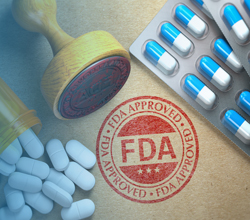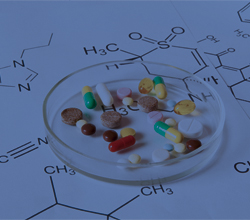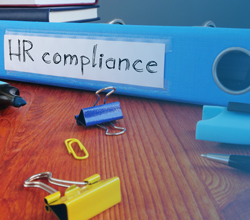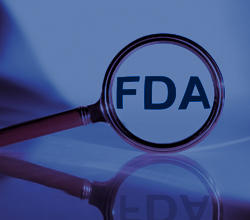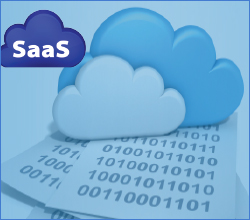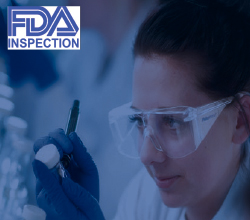
Process Capability for Normal and Non-Normal Data (Focus: Process Stability, Capability and Cp, Cpk, Pp, Ppk, Cpm)
 Steven Wachs
Steven Wachs
 75 Min
75 Min
Product Id: 705020
This webinar discusses methods for estimating process capability for both normal and non-normal data. Methods include estimating the proportion of defective products that may be produced as well as the calculation and use of common process capability indices (e.g. Cpk and Ppk). Process Capability assessments are discussed in the overall context of quality improvement/management.

GAMP Data Integrity 21 CFR Part 11 Training Course
 Kelly Thomas
Kelly Thomas
 90 Min
90 Min
Product Id: 706912
This course will cover data integrity, electronic records and signatures, and the compliant operation of GxP Computerized Systems to provide the tools and techniques to implement proper controls for data to ensure the integrity and validity of the information throughout the data lifecycle.

Finished Pharmaceuticals CGMPs
 John E Lincoln
John E Lincoln
 90 Min
90 Min
Product Id: 706990
This webinar is intended to provide guidance regarding good manufacturing practice (GMP) for the manufacturing of finished pharmaceuticals under an appropriate system for managing quality. It is also intended to help ensure that The final drug product meets the quality and purity characteristics that they purport, or are represented, to possess.

Good Clinical Practice (GCP) Basics for GMP Experts
 David L Chesney
David L Chesney
 90 Min
90 Min
Product Id: 706991
This webinar presents an introduction to fundamental GCP concepts for personnel who are experienced in GMP but new to the GCP topic. It is designed to help adapt principles learned in a GMP context to GCP operations, pointing out the similarities and differences between Quality Assurance management in each of these disciplines.

Gaining and Re-establishing Control of Your Cleanroom
 Joy McElroy
Joy McElroy
 60 Min
60 Min
Product Id: 705317
This webinar will focus on the critical steps in starting up a new cleanroom operation and releasing it for manufacturing. It includes a case study-based approach to dealing with excursion events and establishing control of the cleanroom after a worst case event.

Managing Microbiological Out of Specification (OOS) and Out of Trend (OOT) Results in Sterile and Non-Sterile Production FDA & ICH Expectations and Guidance
 Barry A Friedman
Barry A Friedman
 90 Min
90 Min
Product Id: 706884
The objective of this interactive, live training webinar is to explore the management of OOS practices and suggested avenues to take to minimize deviations, OOT, OOS and CAPA and how to attack these situations should they occur. It is also designed to determine how FDA and ICH regulations and guidances may impact them. It will also reference the new PDA TR 88, “Microbial Data Deviation Investigations in the Pharmaceutical Industry”.

US FDA's Cybersecurity and NIST Framework Requirementsfor Networks
 John E Lincoln
John E Lincoln
 90 Min
90 Min
Product Id: 706971
Cybersecurity is the art of protecting networks, devices, and data from unauthorized access or criminal use. It is the practice of ensuring confidentiality, integrity, and availability of information, and is a rapidly growing problem for industry.

Assess Impact For Supplier Change Notices
 Alan M Golden
Alan M Golden
 60 Min
60 Min
Product Id: 706344
This webinar will discuss dealing with supplier change notices. Regulatory agencies have the expectation that a manufacturer has control over its supply chain and dealing with changes to that supply chain can be challenging.

The eSTAR Submission Program for 510(k)s, IDEs, De Novos, PMAs, and Q-Submissions
 John E Lincoln
John E Lincoln
 90 Min
90 Min
Product Id: 706968
The regulation and control of new or substantially changed medical devices for sale in the US is based on the 510(k), PMA or DeNovo submission process; 510(k)s now can only be submitted to the FDA under the eSTAR (electronic Submission Template And Resource) Portal. Other submissions will be phased in using new guidance templates as they become available.

Quality Agreements and Their Role as Part of a Quality System
 Michael Ferrante
Michael Ferrante
 90 Min
90 Min
Product Id: 706966
This webinar will focus on the Process for Quality Agreements and requirements that must be implemented to ensure compliance with the latest quality and regulatory requirements. Attendees will learn the reason for implementing a Quality Agreement system to assure adequate controls for Service Providers.

P&PC, SPC/6Sigma, Failure Investigation, Root Cause Analysis, PDCA, DMAIC, A3
 John E Lincoln
John E Lincoln
 90 Min
90 Min
Product Id: 706963
This webinar is intended to provide guidance regarding the CGMPs on manufacturing methods utilizing the US FDA Production and Process Controls for Drugs and Devices and Statistical Process Controls (SPC) as taught by Drs. Demming and others and required also in the CGMPs and under control of variation process guidance.

Design Control / Ddesign and Development Requirements / Documents Under 21 CFR 820/ ISO 13485 7.3
 John E Lincoln
John E Lincoln
 90 Min
90 Min
Product Id: 706923
Proper adherence and documentation of the FDA's Design Control requirements are key to any medical product project's success.

Deconstructing EU MDR with Principles of Lean Documents and Lean Configuration
 Jose Mora
Jose Mora
 120 Min
120 Min
Product Id: 706959
The EU MDR is a comprehensive and complex regulation that combines all aspects of placing certain types of medical devices on the EU market into one regulation. It addresses the obligations of economic operators in this role, and provides for extensive databases, clinical requirements, classifications, conformity, and many defined relationships between agencies, member states, and other directives and regulations.
This webinar deconstructs the many parts of this regulation into the elements of lean documents and lean configuration, providing an opportunity to apply these principles as a way to create and maintain flexibility as this and new harmonized standards and regulations emerge.

The New US FDA 21 CFR 820, Quality Management System Regulation (QMSR), Medical Device CGMPs
 John E Lincoln
John E Lincoln
 90 Min
90 Min
Product Id: 706961
The US FDA, after years of discussing the harmonization of 21 CFR 820, Device CGMPs (QSR), to the ISO 13485, Device QMS, has finally published their QMSR to replace the previous QSR. On February 02, 2024, they published the final rule in the US Federal Register that revises 21 CFR 820 to include ISO 13485:2016 by reference, called the Quality Management System Regulation (QMSR).

Drug Labeling and Packaging: Meeting Regulatory Requirements
 Charles H Paul
Charles H Paul
 60 Min
60 Min
Product Id: 706953
The webinar, titled "Drug Labeling and Packaging: Meeting Regulatory Requirements," is a comprehensive exploration of the critical nexus between pharmaceutical labeling, packaging, and regulatory mandates. Over the course of 60 minutes, this session will provide participants with a thorough understanding of the pivotal role that accurate and compliant drug labeling and packaging play in ensuring patient safety and meeting global regulatory standards.

FDA's New Software Validation Requirements
 John E Lincoln
John E Lincoln
 90 Min
90 Min
Product Id: 706952
CGMP companies must develop / implement formal software V&V for medical product under IEC 62304 and a key US FDA Guidance Document.

Data Privacy: California Privacy Rights Act (CPRA), Health Information Portability & Accountability Act (HIPAA), and General Data Protection Regulation (GDPR)
 Carolyn Troiano
Carolyn Troiano
 90 Min
90 Min
Product Id: 706951
The California Consumer Privacy Act (CCPA) was enacted into law on June 28, 2018 and became effective on January 1, 2020. CCPA provided a variety of consumer privacy rights and the obligations of business related to their storage and sale of personal information.
Voters in California voted to approve Proposition 24, a ballot measure, on November 3, 2020, which created the California Privacy Rights Act (CPRA). The purpose of CPRA was to modify and expand the requirements of the CCPA, thus amending the original act. CPRA is commonly referred to as “CCPA 2.0.”
CPRA ends the ban on providing the CCPA’s consumer privacy rights to a company’s employees. Under CPRA, all employers must respond to requests from employees to access or correct their personal data. Enforcement of CPRA will become effective in July 2023, enabling companies six months to ramp up their efforts to comply with it.
CPRA also extends new protections to consumers residing in California. Those organizations doing business with these consumers are subject, based on defined threshold of operation, to the compliance requirements.

How to Achieve Validation Requirements for a Clean Room Manufacturing Environment
 John E Lincoln
John E Lincoln
 90 Min
90 Min
Product Id: 706947
Both the U.S. FDA and EU's MDR expect documented risk-based clean room manufacturing environment per ISO 14644-series, ISO 14698-series (and the old FED-STD 209E).

US FDA Medical Device QSR (21 CFR 820) / Quality Management System - current and proposed major changes
 John E Lincoln
John E Lincoln
 90 Min
90 Min
Product Id: 706950
The US FDA/CDRH is proposing to harmonize the current Quality System Regulation (QSR) for medical devices (21 CFR 820) by converging its requirements with requirements used by many other regulatory authorities. ISO 13485, into a new device Quality Management System Regulation (QMSR).

Cybersecurity - The Latest US FDA Requirements
 John E Lincoln
John E Lincoln
 90 Min
90 Min
Product Id: 706949
Cybersecurity is the art of protecting networks, devices, and data from unauthorized access or criminal use. It is the practice of ensuring confidentiality, integrity, and availability of information, and is a rapidly growing problem for industry.

